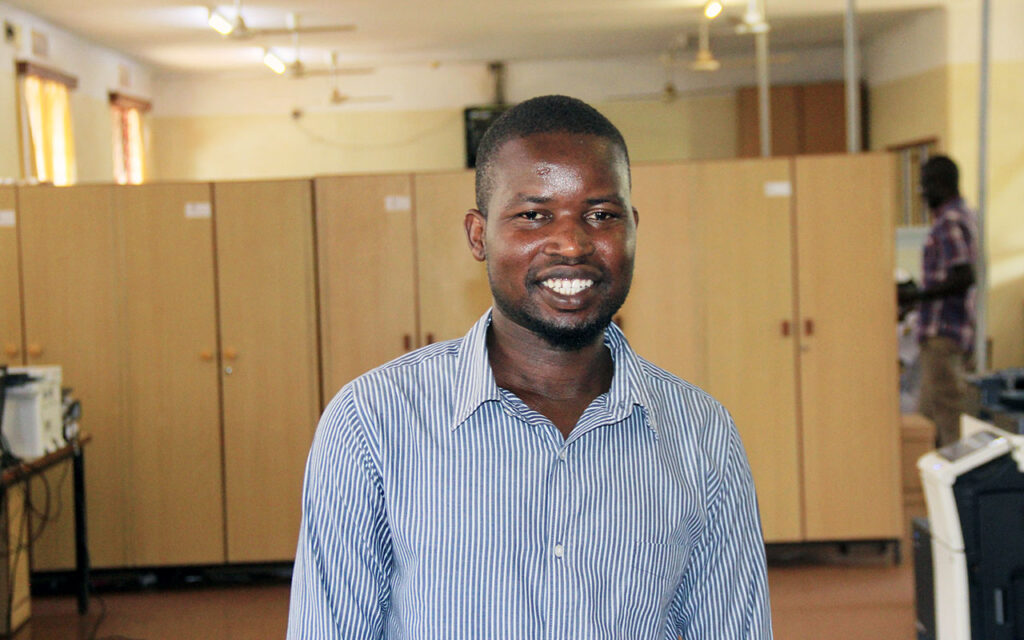Celebrating haemophilia specialist nurses
Last year, The Journal of Haemophilia Practice created a space within its pages to reflect on the important role that haemophilia nurses play within bleeding disorder care. In the ‘Living, Caring, Learning’ series, nurses from around the world to share their experiences of caring for people with bleeding disorders and their families, and to think about how these encounters have led to new ways of thinking about their nursing practice.
Published slowly between International Nurses Day in 2023 and 2024, the journal editors hope these individual reflections and recollections will showcase common themes about haemophilia nurses’ abilities to offer extraordinary care that exceeds expectations, as well as highlighting some of the challenges that exist for nurses working in this specialist area.
Having had some time away after some challenges caused by own haemophilia, where I witnessed first-hand the importance that quality nursing care can play, it’s a privilege to read and blog my own reflections on some of the papers published so far.
Reflections on relationships
The series starts with a piece by Regina Butler, who reflects on the therapeutic relationship in haemophilia care. Having been involved in haemophilia nursing since 1973, Regina has seen the haemophilia care experience transformed from spending all day infusing factor and treating bleeds to a situation where the work of haemophilia nurses involves patient education, bleed prevention and developing outreach. The therapeutic landscape has shifted considerably, with more work focused on treating women and girls with bleeding disorders and exciting prospects like encouraging patients to get involved with gene therapy trials.
However, Regina explains that this hasn’t been a linear path. Having been initially excited by the new possibilities for people with haemophilia emerging from home treatment and new factor replacement products in the 1980s, she emotively recalls how the crisis of contaminated blood instead led to a growing number of people with bleeding disorders living with HIV/AIDS – at that point, a terminal disease.
Trust and boundaries
Regina’s article focuses in particular on the challenges of developing and maintaining relationships with patients and families affected by bleeding disorders. Nurses can develop close relationships of trust, respect, empathy, and friendship with the people they care for. As Regina explains, though, there’s a risk that this can become a dependence, and a challenge for both nurse and patient alike. Reflecting on the traumatic times of the contaminated blood crisis, she explains how the cumulative grief of seeing patients die from AIDS took a significant emotional toll on haemophilia nurses at the time. This is an example of the need for haemophilia nurses to have appropriate training and support networks, and be able to establish clear boundaries. As Regina concludes, nurses cannot be best friends with their patients, as it risks their own health and wellbeing.
As someone with a bleeding disorder, it’s interesting to read about experiences from a nursing perspective. Having a rare condition means we can come to rely on specific people within our care teams, perhaps without considering the impact this may have on them as an individual. Regina’s strategy – that people with bleeding disorders are enabled and encouraged to develop trust in the system and team that is caring for them, rather than individual nurses – seems important to remember and embed within modern haemophilia care structures.
Changing practice
Dalia Bashari has been a specialist haemophilia nurse at Israel’s National Hemophilia Center for over 35 years. In her ‘Living, Caring, Learning’ paper, she discusses the ‘family’ nature of the treatment centre for a woman with severe haemophilia. She explains how early diagnosis of haemophilia is common in Israel, often revealed as a result of bleeding following circumcision. Although this means there are opportunities for nurses to get to know patients and their families from a very early age, like much haemophilia care around the world, it also leads to a focus on males with haemophilia. Dalia reflects on her experiences caring for and learning from a young woman with the condition. She recalls the changes in care practices involved: thinking about prophylaxis during menstruation, family planning, and the importance of haemophilia care during pregnancy and childbirth.
In particular, a focus on relationships emerges in Dalia’s article. Her reflections demonstrate how really getting to know people with bleeding disorders (and their families) can be a useful strategy for haemophilia nurses, allowing the development of supportive and trusting relationships which can optimise care. However, similar to Regina, she also recognises the importance of setting boundaries and enabling independence, rather than reliance, among people with bleeding disorders.
Motivation and encouragement
The series continues with a piece on early education, active lives and tailored treatment by Josipa Belev, a haemophilia nurse in Croatia. Among Croatia’s population of around 4 million people, there are only 400 people diagnosed with bleeding disorders – making care for the condition a real speciality.
Josipa recalls a formative experience, when she was a young nurse, of encountering two young men with haemophilia who had started prophylaxis at a very early age. The stark difference in their quality of life – active, healthy, happy, sporty – compared with other haemophilia patients with extreme joint damage that she was seeing regularly at the time, made her re-assess what she had been taught about the possibilities and expectations for people with the condition. She describes how, as a nurse, this encounter motivated and inspired her to support and encourage other people with haemophilia to develop the skills they needed to be independent and engage in self-care. For Josipa, it also reflected what can be achieved through working in active collaboration and partnership with people affected by haemophilia.
Making a difference
As a patient, it’s interesting to realise that you never know what kind of legacy your encounter with health care professionals might lead to, and that you might also be an inspiration for a nurse to encourage other patients to be more (or perhaps, less!) like you. In this way, nurses can facilitate skills and accomplishments in the bleeding disorders community that can be shared with others. At the same time, though, Josipa reminds us of the importance of approaching each patient as an individual. Just because some people with haemophilia now have the opportunity and health to take part in professional sports, it doesn’t mean this will be right for every person with haemophilia.
The importance of relationships again comes through as a significant theme in Josipa’s article. She talks about the importance of getting to know patients over a long period of time – their lifestyle, and social situation as much as their medical history. She also explains how understanding individual circumstances, experiences, and goals means that nurses can help organise care according to specific needs. Making small adjustments to a patient’s care plan can make a big differences to their quality of life – and as Josipa concludes, “it’s the beauty of the nurse’s role that we can make that difference”.
Note: Since this blog was written, papers by haemophilia nurses Greta Mulders (Netherlands) and Marcela Ganzella-Sisdelli (Brazil) have also been published in the ‘Living, Caring, Learning’ series. Further papers will follow between February and May 2024.
Further reading
Butler R. Living, Caring, Learning – Reflections on the therapeutic relationship in haemophilia care. J Haem Pract 2023; 10(1): 30-32. doi: 10.2478/jhp-2023-0005.
Bashari D. Living, Caring, Learning – The treatment centre as family for a woman with severe haemophilia. J Haem Pract 2023; 10(1): 33-35. doi: 10.2478/jhp-2023-0006.
Belev J. Living, Caring, Learning – Early education, active lives and tailored treatment in haemophilia care. J Haem Pract 2023; 10(1): 36-38. doi: 10.2478/jhp-2023-0007.
Mulders G. Living, Caring, Learning – Addressing challenges in the transition to adult care. J Haem Pract 2023; 10(1): 122-124. doi: 10.2478/jhp-2023-0020.
Ganzella-Sisdelli M. Living, Caring, Learning – Trust and teamwork in patient care. J Haem Pract 2023; 10(1): 125-127. doi: 10.2478/jhp-2023-0021.
About the author
Rich Gorman lives with severe haemophilia A. He works as a researcher at Brighton and Sussex Medical School.
To find out more about The Journal of Haemophilia Practice or publishing with Haemnet, email us at publishing@haemnet.com
Image: Shutterstock/PeopleImages.com – Yuri A


